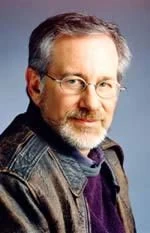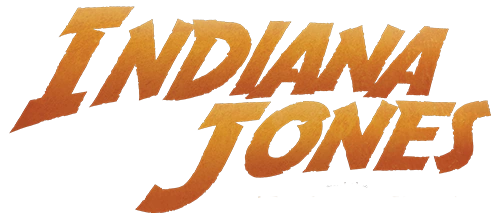- "People go to these movies because they want to see Steven do his brilliant turn as a director. If anyone else did the story it wouldn't be as good. He can do anything — Schindler's List, Saving Private Ryan... But this is the kind of movie he can do in his sleep. Not that he does it in his sleep — he actually gets a kick out of it!"
- ―George Lucas, Total Film magazine, May 2008 issue, p. 137

Steven Spielberg
Steven Allan Spielberg, KBE (born December 18, 1946 in Cincinnati) is an American film director. He has won three Academy Awards (as well as an Irving G. Thalberg Memorial Award), and ranks among the most successful filmmakers in history, in terms of both critical acclaim and popular success. His films have however also been derided as the archetype of modern Hollywood blockbuster film-making (commercialism over artistic purposes).
First coming to attention directing adventure films, Spielberg is noted in recent years for his willingness to tackle emotionally powerful issues, such as the horrors of the Holocaust in Schindler's List, slavery in Amistad, hardships of war in Saving Private Ryan, and terrorism in Munich. One consistent theme in his family-friendly work is a childlike, even naïve, sense of wonder and faith, as attested by works such as Close Encounters of the Third Kind, E.T. the Extra-Terrestrial, Hook and A.I., and the challenging role of a father-figure, apparent in War of the Worlds.
Spielberg is the most financially successful motion picture director of all time. He has directed and/or produced an astounding number of major box office hits, giving him great influence in Hollywood. As of 2004, he has been listed in Premiere and other magazines as the most "powerful" and "influential" figure in the motion picture industry.
In 2005, Empire magazine created a list of the 50 greatest film directors of all time. Spielberg was number one on the list.
He has been nominated for six Academy Awards for Best Director, winning two of them (Schindler's List and Saving Private Ryan), and seven of the films he directed were up for the Best Picture Oscar (Schindler's List won). He is seen as a figure who has the influence, financial resources, and acceptance of Hollywood studio authorities to make any movie he wants to make, be it a mainstream action-adventure movie (such as Jurassic Park), or a three-hour-long black and white drama about the Holocaust (Schindler's List).
In 2001, he was given the honor of Knight Commander of the British Empire (KBE) by Queen Elizabeth II.
Indiana Jones Films
Raiders of the Lost Ark (1981)
What some would consider Spielberg's greatest film work was still to come, beginning in the 1980s. In 1981, Spielberg teamed up for the first time with his friend George Lucas to make Raiders of the Lost Ark, his homage to the cliffhanger serials of the Golden Age of Hollywood, with Harrison Ford (whom Lucas had previously cast in his Star Wars films) as the dashing hero Indiana Jones. The biggest film at the box office in 1981, and recipient of numerous Oscar nominations including Best Director (Spielberg's second nomination) and Best Picture (the second Spielberg film to be nominated for Best Picture), Raiders is still hailed as a landmark in action cinema.
Indiana Jones and the Temple of Doom (1984)
His friend George Lucas immediately pulled Spielberg back in as part of their friendly agreement to make more Indiana Jones movies. Plagued with uncertainty for the material, the saving grace for Spielberg during the making of this film would be the meeting of his future wife Kate Capshaw, who was cast as Indiana's new love interest.
The film was a hit though the reviews were less positive than they were for its predecessor. It was criticized for lacking the energy of the original, as well as for its grossly inaccurate and ignorant depiction of Indian culture. The extreme violence and gore would also inspire the Motion Picture Association of America to create the PG-13 rating the following year. Lucas, the story writer, has said that it was due to his bad mood. When he wrote the story, he had just divorced. Therefore, he was in a bad mood. This caused the violence that the film was criticized for.
Indiana Jones and the Last Crusade (1989)
After two forays into dramatic films, Spielberg returned to familiar territory by re-uniting "one last time" for another Indiana Jones film. With the inclusion of star Sean Connery, Spielberg vicariously fulfilled a lifelong dream to make a James Bond movie. Lucas himself heralded his Indiana Jones creation as an alternative to Bond back when they first discussed films to work on together. The father-son issues in the picture are congruent with much of Spielberg's work, making this Indy film the most personal of the three. Receipient of glowing reviews and big box office receipts, Spielberg, Lucas and Ford left the franchise on a high mark.
Indiana Jones and the Kingdom of the Crystal Skull (2008)
The development of the fourth Indiana Jones film was delayed for nineteen years. It was released on May 22, 2008.
Personal Life
Spielberg has been married to actress Kate Capshaw, whom he met when he cast her in Indiana Jones and the Temple of Doom since October 12, 1991.
He has seven children — four biological
